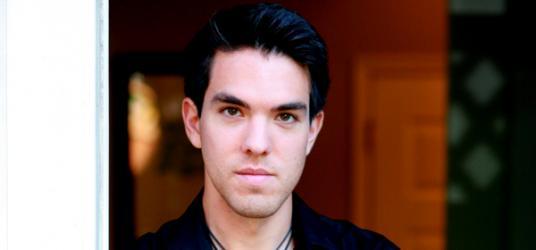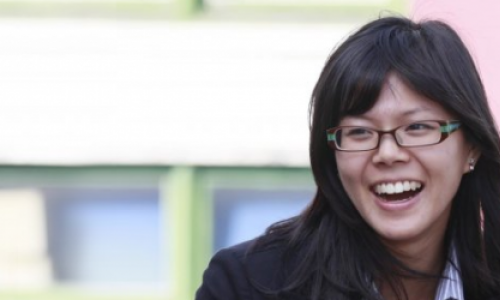
A few years ago I began conducting information interviews with professionals whose careers seemed accessible to students with degrees in the liberal arts. One region of particular interest to me (thanks to HBO and all its riveting shows) was film and television. I was curious about what it meant to be a writer or producer in the industry. Luckily, I ran into Kelvin Redvers, a very friendly and open young producer who focuses on developing aboriginal documentaries for CTV. Kelvin was generous enough to share his experiences with me.
What motivates you to look forward to your job every morning?
Since I am aboriginal I know that the aboriginal voice isn't often that strong in the media. You see often that there will be news stories on native folk, on art work and that sort of thing, but the actual voice from the people isn't that strong in the general public. To bring out that voice is very important to me because that is my background. So, it really does excite me to be able to tell the stories that, very often, no one else is telling. And that's what gets me up in the morning—to be able to go to work and tell a story about traditional healers working in hospitals. Nobody else is covering that story.
Do you have a particularly exciting project, or aspect of your position that you can share?
There’s a few. The first one I did was about the unknown oil spills up in northeastern BC. A pipeline burst in 2002 and 200,000 liters of crude oil mixture spilled out onto the ground and it’s still not cleaned up. There’s salt content in the spill so animals who are attracted to salt in the forest go to these spills and literally lick up the oil. This has been going on for almost a decade now, and the First Nations are, to say the least, upset that this happens. At the same time the Caribou population has been decreasing dramatically. These peoples’ livelihood is just vanishing, and it seems no one else in the general public is aware that this is happening, so that was the first episode I did for the show. It’s still getting very positive responses because people are sort of like “wow, I didn’t realize….”
Is there any routine component to your position? And how do you deal with it?
I’m getting used to the routine now. I first started back in September, so it’s been 5 months now. We’re almost at the end of the first season, and when I first walked into the position I was terrified—legitimately terrified. I had just come out of university and was suddenly in charge of making 23 minutes of television in about 5 weeks and very much on my own to do all the research—contacting, scheduling, directing, writing, narrating… It was very frightening. But it’s something that I wanted to do so I kind of jumped into it and I think I needed the routine to be able to know what to expect each day. At this point I feel like I’ve found a routine, and it’s a little more comforting, just to know: “Ok, I’m at this point. I need to find three inteviews, then find a location, then transcribe the interview and do the writing.” So there are fewer surprises now in terms of what’s expected, and I can focus a little more on just telling the stories well.
How many hours would you say you put in?
I’m on salary, and it’s expected I work about 40. But since it’s a creative position, I could work 80 hours/week and have a much better story, assumedly. These days I probably work 50-60 hours/week. I have to figure out how to structure a story, so it’s hard to walk away. When I finish my job and walk home at 6:00, it’s hard to turn that piece of my mind off. It follows me to bed. Those are the unstated hours that I’m trying to get away from. I’m getting better at having a life outside of work. Balance is very key.
If you could give others any tips for breaking into this industry, what would they be?
Follow your passion. Gain experience. Be able to prove your passion. You can’t just walk in and say, “I’m passionate!” You have to be able to say—“I did this, this, this and this.” Nor does simply listing your skills speak nearly as much to your abilities as saying, “I organized a 1000 person event on campus where everyone ate bannock.” You have to be doing things that apply to where it is that you want to go. Even if you don’ t have a direction yet, there are so many things you could be doing that, no matter what industry you end up in, can still prove to somebody that you’re willing to go the extra mile. And I think that’s what people will be looking for when they’re hiring for the position, is someone who won’t just be doing it for a paycheck, but will actually put their passion into it.
My last question, which I think is pretty self-evident since you were a film major, is whether or not you feel like your university education is directly applicable to your current employment.
Absolutely! My education is 100% applicable to my position, but not in the way you may think. Now I’m technically a journalist, despite not going to journalism school. However, what I did learn was how to be a filmmaker and how to tell stories. Journalism is a different way of telling a story. So as long as I had that foundation from my education then I could apply it to this occupation. I remember, a reporter said about a piece that I did, that it was “incredible journalism”. And I was like “wow!” That’s kind of cool to hear. Because you know, for me it’s storytelling.
Since I’m publishing this article two years after initially contacting Kelvin, I was curious to find out more about where he’s at currently in his career. His incredible energy and passion have allowed him to have one of his movies, ‘The Dancing Cop’, screened at this year’s Toronto International Film Festival. You can follow Kelvin on Twitter at @kelvinredvers.














